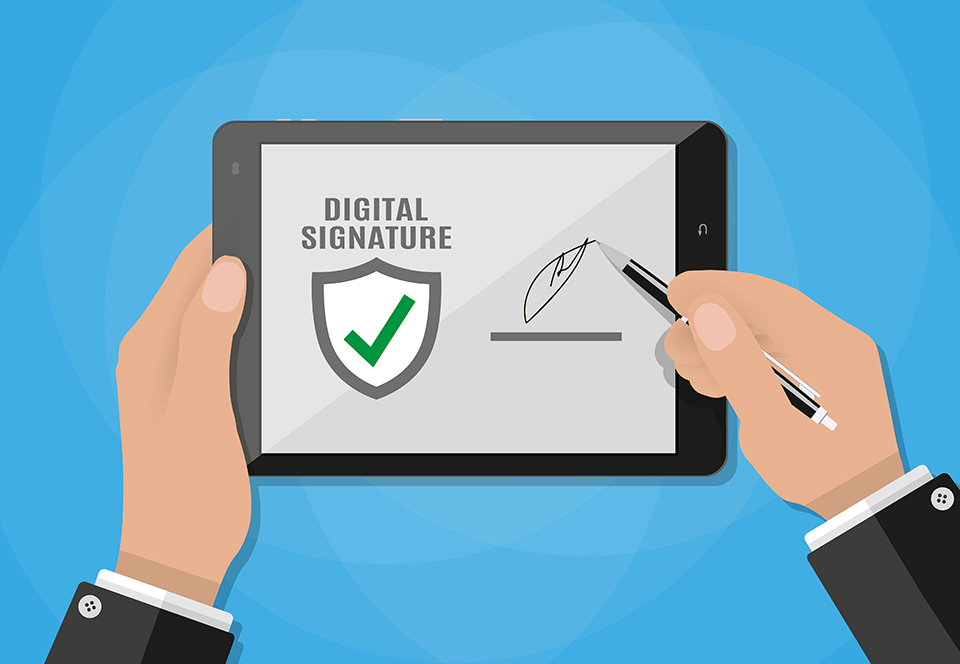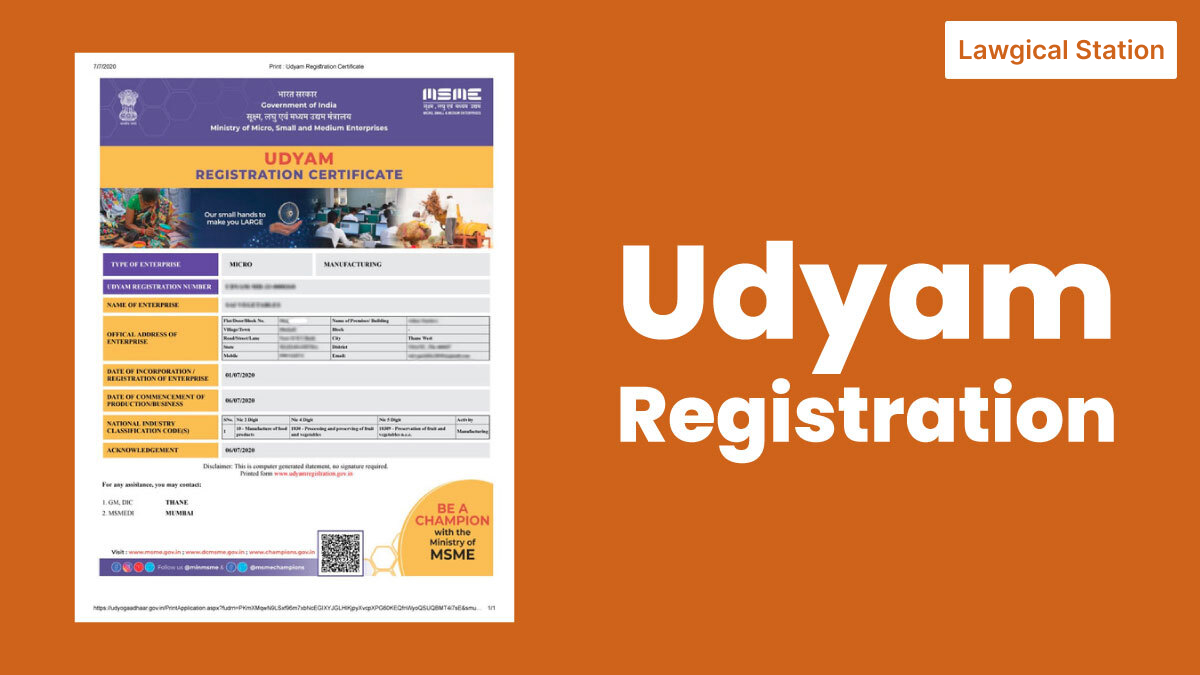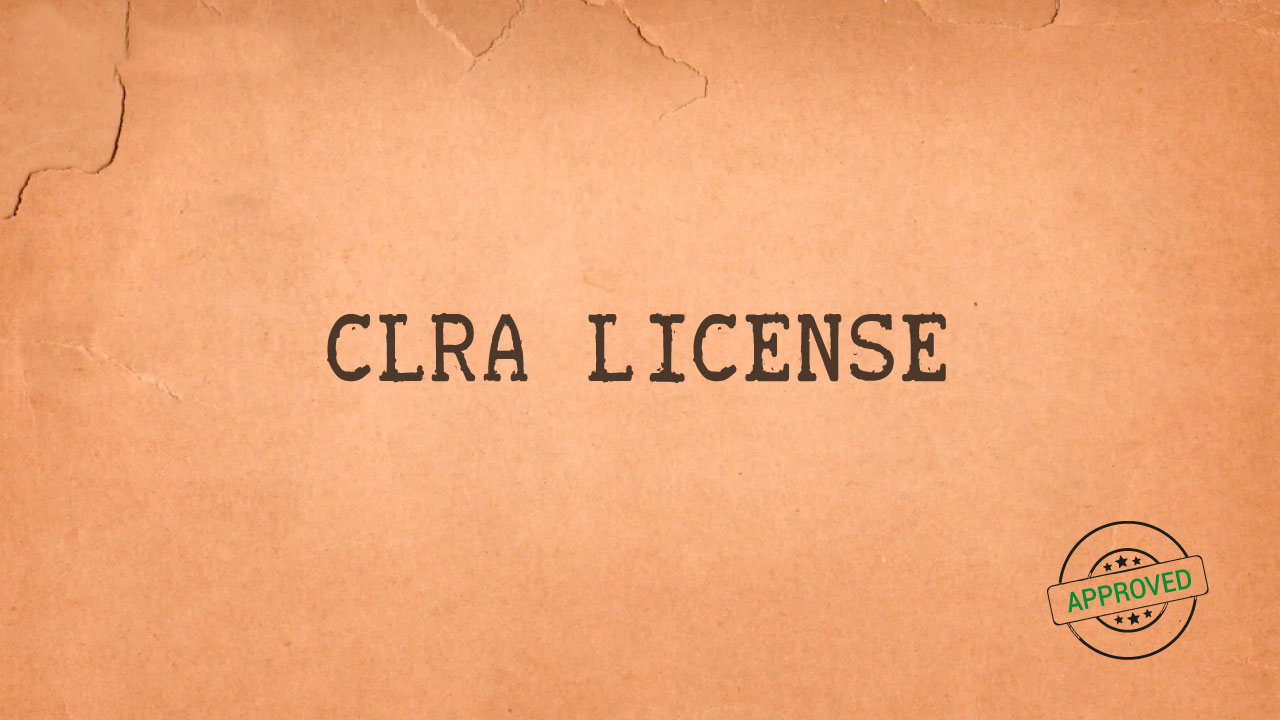Phone
+91 8979141354
info@lawgicalstation.com


A Digital Signature Certificate (DSC) is an electronic credential that authenticates the identity of the certificate holder, ensuring the integrity and non-repudiation of digital communications and transactions. Issued by a certifying authority, a DSC uses public key infrastructure (PKI) to encrypt and sign data, providing a secure method for verifying the authenticity of electronic documents and messages. It is widely used in various online activities such as filing tax returns, signing legal documents, and conducting secure communications in business and government sectors. By ensuring that the content has not been altered and confirming the sender's identity, DSCs play a crucial role in enhancing the security and trustworthiness of digital interactions.
Udyam Registration is a government-initiated process in India aimed at simplifying and streamlining the registration of Micro, Small, and Medium Enterprises (MSMEs). It provides a unique identification number and a certificate for businesses, which is essential for availing various benefits and subsidies offered by the government. This registration enhances the ease of doing business, enabling MSMEs to access financial support, credit, and various schemes designed to promote their growth and development. The process is entirely online, user- friendly, and free of charge, making it accessible to entrepreneurs and business owners across the country. Udyam Registration is a crucial step for small businesses to formalize their operations and gain recognition and support from the government.


ISO Certification is a formal recognition that an organization adheres to the standards set by the International Organization for Standardization (ISO). This certification process involves rigorous assessments and audits to ensure that the organization's processes, products, or services meet the specified ISO standards, which cover aspects like quality management, environmental practices, and information security. Achieving ISO Certification demonstrates a commitment to excellence, operational efficiency, and continuous improvement, enhancing the organization's credibility and competitiveness in the global market.
BIS Certification, issued by the Bureau of Indian Standards (BIS), is a mark of quality, safety, and reliability for products sold in India. This certification ensures that products comply with the specified standards set by BIS, which cover a wide range of items from electronics to food products. Obtaining BIS Certification involves rigorous testing and inspection, providing consumers with assurance about the product's compliance with national standards. It also helps manufacturers gain market access, enhance product credibility, and foster consumer trust.


Hallmark Certification, administered by the Bureau of Indian Standards (BIS), is a quality certification mark used for gold and silver jewelry sold in India. It signifies that the jewelry meets the standards of purity set by BIS, ensuring consumers receive authentic precious metal items. The certification process involves rigorous testing of the jewelry's purity and hallmarking at BIS recognized assaying and hallmarking centers. Hallmark Registration helps consumers make informed purchasing decisions and promotes transparency in the jewelry market by guaranteeing the quality and authenticity of precious metal products.
IRDAI registration refers to the process through which insurance companies and intermediaries in India obtain approval from the Insurance Regulatory and Development Authority of India (IRDAI) to operate within the insurance sector. This registration is mandatory and ensures that entities comply with the regulatory framework set by IRDAI, which includes guidelines on capital requirements, solvency margins, customer protection, and market conduct. IRDAI registration is essential for insurance companies and intermediaries to legally conduct business, offer insurance products, and protect the interests of policyholders.


A liquor license is a legal permit issued by government authorities that allows individuals or businesses to sell, serve, or distribute alcoholic beverages within a specific jurisdiction. The issuance of liquor licenses is regulated to ensure compliance with local laws, including regulations on the sale, consumption, and distribution of alcohol. These licenses are typically required for establishments such as bars, restaurants, liquor stores, and event venues where alcoholic beverages are sold or served. Obtaining a liquor license involves an application process that may include background checks, adherence to zoning regulations, and compliance with health and safety standards. The terms and conditions of liquor licenses vary by jurisdiction, and violations can result in fines, suspension, or revocation of the license.
A Drug & Cosmetic License, often referred to as a manufacturing license, is a legal requirement in India for businesses involved in the production, distribution, or sale of drugs and cosmetics. Issued by the Central Drugs Standard Control Organization (CDSCO) under the Drugs and Cosmetics Act, 1940, this license ensures that products meet quality standards and safety regulations before they are marketed. The process involves submitting detailed documentation, complying with Good Manufacturing Practices (GMP), and undergoing inspections to verify adherence to safety, efficacy, and labeling norms. Drug & Cosmetic Licenses are essential for ensuring consumer safety and maintaining quality standards in the pharmaceutical and cosmetic industries.


AD Code registration is mandatory for businesses involved in international trade to facilitate foreign exchange transactions under RBI regulations. It enables smooth processing of payments for exports and imports.
An APEDA Registration-cum-Membership Certificate (RCMC) is issued by the Agricultural and Processed Food Products Export Development Authority (APEDA) of India. It is mandatory for exporters of scheduled agricultural products to obtain this certificate to avail various benefits and incentives under government schemes. The RCMC signifies compliance with quality standards and export regulations, ensuring that products meet international requirements. The application process involves submission of necessary documents and compliance with APEDA guidelines, enabling exporters to enhance their market access and competitiveness in global trade.


Spice Board Registration is a mandatory requirement for businesses involved in the export of spices from India. Administered by the Spices Board of India, this registration ensures adherence to quality standards and export regulations set by the board. It facilitates the monitoring and promotion of spice exports by providing certification and regulatory oversight. The registration process involves submitting necessary documents and complying with Spices Board guidelines, enabling exporters to access benefits and support schemes aimed at promoting Indian spices in international markets.
FIEO, or the Federation of Indian Export Organisations, is the apex body of Indian export promotion organizations. FIEO registration is essential for Indian exporters seeking to benefit from various services and initiatives aimed at enhancing export competitiveness. It provides exporters with networking opportunities, market intelligence, policy advocacy, and support in resolving export-related issues. Registration involves joining as a member and adhering to FIEO's guidelines, allowing exporters to leverage FIEO's expertise and resources to expand their global reach and navigate international trade effectively.


A Legal Metrology License is a mandatory requirement for businesses that manufacture, repair, or deal in weighing and measuring instruments used in trade. Issued under the Legal Metrology Act, this license ensures compliance with standards and regulations governing the accuracy and fairness of measurements in commercial transactions. The process involves submitting an application along with necessary documents, including details of the business premises and the type of instruments used. Once granted, the license authorizes businesses to use, repair, or sell measuring instruments while adhering to periodic verification and reporting requirements to uphold measurement accuracy and consumer protection standards.
CLRA (Contract Labour Regulation and Abolition) registration and licensing are mandatory for establishments in India that engage contract labour. Administered by the respective State Governments under the CLRA Act, this process ensures compliance with regulations concerning wages, working conditions, and other statutory benefits for contract workers. Employers must apply for CLRA registration and obtain a license before engaging contract labour. The registration involves submitting detailed information about the establishment, nature of work, and the number of contract workers employed. Once licensed, employers are required to adhere to prescribed norms, maintain registers, and ensure statutory compliance to safeguard the rights and welfare of contract labourers.


A Customs Clearance License is required for businesses and individuals handling customs procedures, ensuring compliance with international trade regulations for the import and export of goods.
PSARA (Private Security Agencies Regulation Act) license is mandatory in India for companies or individuals providing private security services. Issued under the PSARA Act, this license ensures that private security agencies meet specified standards of training, background checks, and operational protocols to safeguard public safety and maintain law and order. The licensing process involves submitting detailed documentation, including proof of company registration, tax compliance, and employee background checks. Once licensed, security agencies must adhere to regulations regarding employee welfare, uniformed appearance, and adherence to legal guidelines while offering security services.
PSARA licenses are essential for ensuring professionalism and accountability within the private security industry, enhancing public confidence and safety.
